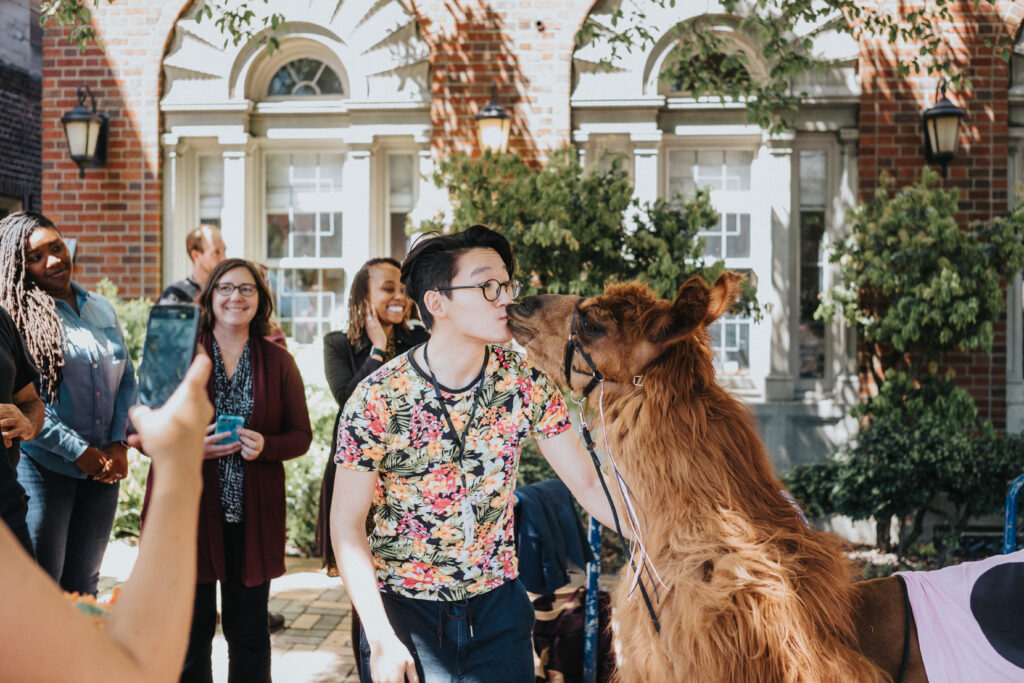Three questions with… Asura!
Our lab is growing! In our Three Questions series, we’re profiling each of our members and the amazing work they’re doing.
Today’s post features Asura Enkhbayar, a PhD student and data scientist at the ScholCommLab. In this post, he tells us about his work at the intersection of bibliometrics, social media research, and philosophy, shares what it’s like to bridge theory and practice, and offers words of advice for staying sane in academia.

Q#1 What are you working on at the lab?
I wear two official hats in the lab. Firstly, as a PhD student I work on critical approaches to citations and scholarly metrics, which sometimes translates into me working on the theoretic and conceptual dimensions of issues explored in the lab. In more concrete terms, this means that you will find me in the fun space between bibliometrics, social media research, and philosophy. Secondly, you will see me as the lab data scientist helping out in various projects in the lab. Finally, I also claim the unofficial lab-shitposter hat on Twitter.
Q#2 Tell us about a recent paper, presentation, or project you’re proud of.
Metrics in Context is a project that grew out of theoretical aspects of my doctoral research and has recently become a great example for the kind of work that I aspire to do. In it, I revisit common conceptualization of scholarly metrics in order to develop an analytic framework to describe various data sources for metrics. While the project is still in its early stages, I have recently had the chance to present an overview in a lightning talk at FOSDEM. I am currently working on a prototype implementation and have started conversations to test it with real world data. It is exhilarating and also rewarding to play close to the schism between theory and practice in science. Who knows how big of a gap it will actually turn out to be in the end?
Q#3 What’s the best (or worst) piece of advice you’ve ever received?
I’ve come across this piece of advice in many places and expressed in many different ways. Ranty Reddit threads, dank grad school meme pages, individuals on Twitter sharing their experiences, from the perspective of mental health professionals or even critical theory. I am very grateful that all these communities and individuals again and again remind me of this fact:
Grad school (or academia generally) is not a part of your identity. Your curiosity, love for critical thinking, or desire to improve the world might be part of your personality, but the formal systems of higher education and research are not. Your family and friends, your hobbies, the music and food you love, and your life on weekends are part of your identity and will remain with you for the rest of your life. The grade you got for that essay, that one deadline you suffered for, the number of citations you accumulated, or your academic CV are not part of your identity. Especially, as any representative of a minority group, the whole system is neither designed by nor made for people like you. I like to remember all these things whenever I am struggling, feeling depressed, or questioning the path I am on.
Your curiosity, love for critical thinking, or desire to improve the world might be part of your personality, but the formal systems of higher education and research are not… I like to remember all these things whenever I am struggling, feeling depressed, or questioning the path I am on.
So, do the kind of research that gives you joy (Marie Kondo your research?), join your union, and go to that party and dance your ass off (after Covid of course…).
Find Asura on Twitter at @bubblbu_.